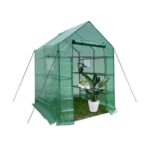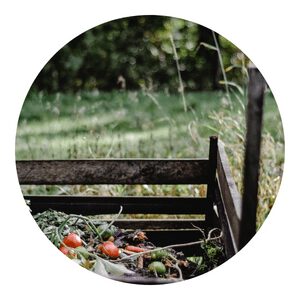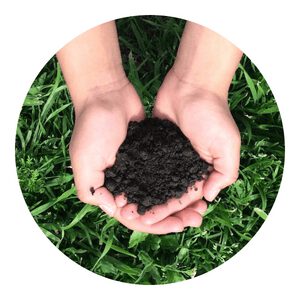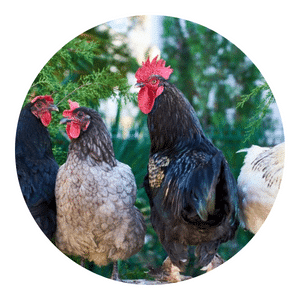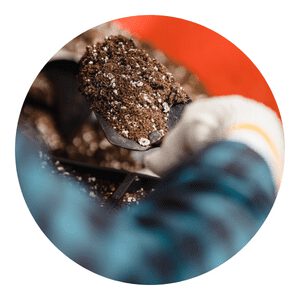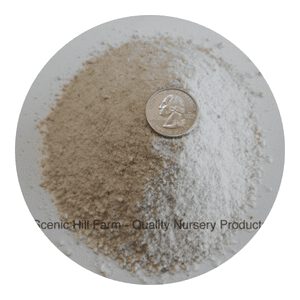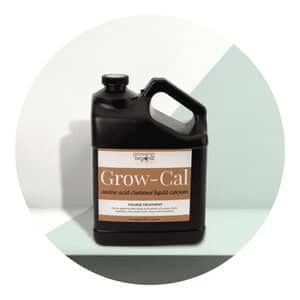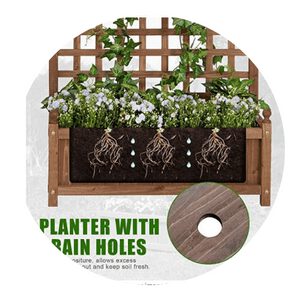What is the Best Fertilizer For Tomatoes?
When planting tomatoes, one of the most important things to consider is what type of organic fertilizer to use.
There are a number of options available, and each has its own advantages and disadvantages.
Here’s a look at the top three organic fertilizers for tomatoes: manure, compost, and premium liquid fertilizer.
Tomatoes Fertilizer Menu
What is organic fertilizer?
Organic fertilizer is a natural fertilizer that is made of organic materials. These materials can be plant or animal based.
Organic fertilizers are usually slower acting than inorganic fertilizers, but they provide more long lasting benefits to the soil.
They are also less likely to cause environmental damage.
Types of organic fertilizers For Tomatoes
There are a variety of organic fertilizers that can be used for tomatoes. Some of the most popular include compost, manure, and blood meal.
Compost is made up of organic matter that has been broken down by bacteria, fungi, and other organisms. It is a rich source of nutrients and can be used to improve soil quality.
Manure is made up of animal waste and can also provide nutrients to soil. It is important to use manure that has been composted or aged because fresh manure can contain harmful bacteria. Blood meal is made up of dried animal
blood and is high in nitrogen. It is a great source of nutrients for plants and can be used as a topdressing or mixed into the soil.
Compost
In order to have a successful tomato garden, you must give your plants the best possible soil in which to grow.
One way to improve the soil is by adding compost.
Compost is made up of organic matter, such as leaves, grass clippings, and vegetable scraps. It is a great way to add nutrients to the soil and help improve drainage.
How to use composrt fertilizer for tomatoes?
One of the best ways to get bigger and healthier tomatoes is to use compost fertilizer. Here’s how to do it:
1. Add a layer of compost to your garden bed before planting tomatoes. This will help improve drainage and add nutrients to the soil.
2. When you water your tomatoes, add a little bit of compost tea or liquid fertilizer to the water. This will give them a boost of nutrients every time you water them.
3. You can also top dress your tomato plants with a layer of compost every few weeks. Just be sure not to cover the stems with compost, as this can cause rot.
4. Finally, don’t forget to add some extra compost to the base of your plants when you harvest them at the end of the season.
Manure
When it comes to fertilizing tomatoes, manure is a great option.
Manure contains high levels of nitrogen, phosphorus, and potassium–the three main nutrients that tomatoes need for healthy growth. In addition, manure is a natural compost that helps improve the soil structure and water retention capacity.
There are many different types of manure available, so be sure to select one that best suits your needs.
For example, steer manure is high in nitrogen but low in potassium, while poultry manure is high in potassium but low in nitrogen.
Horse manure
Horse manure is an excellent fertilizer for tomatoes. It is high in nitrogen and other nutrients that tomatoes need to grow well.
Here are some tips for using horse manure fertilizer for tomatoes:
– mix the manure with an equal amount of compost or peat moss to provide additional nutrients and improve drainage
– till the mixture into the soil before planting, or work it into the top few inches of soil around existing plants
– water the area well after applying the fertilizer
Horse manure should not be used fresh because it can burn plant roots. It is best to age it for six months or more before using.
Cow manure
Cow manure is an excellent fertilizer for tomatoes. It is high in nitrogen and other nutrients that tomatoes need to grow well.
Cow manure also helps to improve the drainage and aeration of the soil, which tomatoes need for healthy roots.
To use cow manure fertilizer for tomatoes, mix it into the soil around the plants at a rate of about 1 pound per square foot. Water the area thoroughly after applying the manure.
For best results, apply cow manure fertilizer to your tomato plants every two weeks throughout the growing season.
Goat manure
Goat manure fertilizer is an effective way to fertilize tomatoes.
The high nitrogen content in goat manure helps to promote growth, while the phosphorus and potassium help to encourage fruit production.
To use goat manure fertilizer, simply spread it around the base of the tomato plant and water it in. For best results, apply the fertilizer every 2-3 weeks during the growing season.
Donkey manure
Tomatoes are one of the most popular home-grown crops. They are relatively easy to grow and produce a bountiful crop.
One of the secrets to growing healthy tomatoes is using the right fertilizer.
Donkey manure is an excellent fertilizer for tomatoes.
Here’s how to use it:
Donkey manure is high in nitrogen, phosphorus, and potassium, which are all essential nutrients for tomatoes. It also contains other trace minerals that tomatoes need for healthy growth.
The manure should be aged or composted before using it on your tomato plants. You can age it by simply letting it sit out in the sun for a few weeks.
To use the donkey manure fertilizer, mix it into the soil around your tomato plants at a rate of about 1 cup per plant.
Water the plants well after applying the fertilizer.
Chicken manure
Chicken manure is an excellent fertilizer for tomatoes. It is high in nitrogen, phosphorus, and potassium, which are all essential nutrients for healthy tomato plants.
Here are a few tips on how to use chicken manure fertilizer for your tomatoes:
1. Apply chicken manure to the soil around your tomato plants at the rate of 1/2 pound per 10 square feet.
2. Incorporate the chicken manure into the top 6 inches of soil using a hoe or tiller.
3. Water the area thoroughly after applying chicken manure fertilizer.
4. Repeat this process every 4-6 weeks throughout the growing season.
Rabbit manure
Rabbit manure is an excellent fertilizer for tomatoes. It is high in nitrogen and other nutrients that tomatoes need to grow well.
Here are some tips on how to use rabbit manure fertilizer for tomatoes:
1. Rabbit manure should be composted before using it as fertilizer. This will help to break down the nitrogen so that it is more readily available for plants.
2. Apply the composted rabbit manure around the base of tomato plants, taking care not to get any on the leaves.
3. Water the plants well after applying the rabbit manure fertilizer.
Sheep manure
Sheep manure is high in nitrogen, phosphorus, and potassium, which makes it an excellent fertilizer for tomatoes.
To use sheep manure fertilizer for tomatoes, mix it into the soil around the plants before planting.
For best results, apply the fertilizer in early spring or late fall.
Fish manure
Fish manure is an excellent fertilizer for tomatoes. It is high in nitrogen and other nutrients that tomatoes need to grow healthy and produce plentiful fruit.
To use fish manure, simply mix it into the soil around your tomato plants at a rate of 1 part fish manure to 10 parts soil. Water thoroughly after applying.
Reapply every 4-6 weeks during the growing season.
Fish emulsion
Fish emulsion has a high nitrogen content and is an excellent fertilizer for tomatoes.
Fish emulsion can be used as a foliar spray or as a soil amendment. It is available in liquid or dry form.
Fish emulsion should be diluted with water before it is applied to plants.
Blood meal
Organic gardeners looking for a high-nitrogen fertilizer may want to consider blood meal.
Blood meal is a dry, powdered product made from animal blood. It’s an excellent source of nitrogen and other nutrients, which makes it ideal for use as a fertilizer.
Blood meal can be applied to the soil before planting or during the growing season.
It’s important to follow the manufacturer’s instructions when using blood meal, as too much can burn plants.
How to use blood meal fertilizer for tomatoes?
Tomatoes are one of the most popular vegetables to grow in home gardens, and blood meal fertilizer can give them a boost.
Blood meal is high in nitrogen, which tomatoes need for strong growth. It also helps to deter pests and can improve the flavor of the fruit.
To use blood meal fertilizer, mix it with water at a ratio of 1 part blood meal to 10 parts water.
Apply it to the soil around your tomato plants once a month. Be sure not to get any on the leaves, as this can burn them.
If you are growing tomatoes in containers, be careful not to overfertilize, as this can lead to problems with root development.
Only apply blood meal fertilizer every other week or at half the recommended strength.
Bone meal
Bone meal is a popular organic fertilizer that is made up of the crushed bones of animals. It is high in phosphorus and nitrogen, which are essential nutrients for plants.
Bone meal can be added to soil before planting tomatoes or it can be mixed in with the soil around the plants as they grow.
Bone meal is also available as a powder that can be sprinkled on the leaves of the plants.
How to use bone meal fertilizer for tomatoes?
Tomatoes are a popular crop for home gardeners. They are relatively easy to grow and produce a large yield.
One way to ensure a bountiful harvest is to use bone meal fertilizer.
Bone meal is rich in phosphorus, which is essential for healthy plant growth. It also contains other minerals that tomatoes need, such as calcium and nitrogen.
Bone meal fertilizer can be applied before planting or during the growing season.
When using bone meal fertilizer, it is important to follow the directions on the package.
This will ensure that you do not over or under fertilize your plants.
Too much phosphorus can actually be harmful to tomatoes.
If you are unsure of how much bone meal fertilizer to use, it is always better to err on the side of caution and use less than what is recommended.
Green manure
When growing tomatoes, green manure can be a great way to add nitrogen and organic matter to the soil.
Green manure is simply a plant that is grown for the purpose of being turned into compost or mulch. The most common types of green manure are legumes, which fix nitrogen from the air into the soil.
A few weeks before you want to plant your tomatoes, work some green manure into the soil. You can either till it in or use a cover crop roller.
Once the plants have died down, you can then turn them into the soil to decompose. This will add vital nutrients to the soil and help improve its structure.
How to use green manure fertilizer for tomatoes?
Green manure is an excellent way to fertilize tomatoes. It is made from plant material, so it is rich in nutrients that are essential for tomato plants.
Green manure also helps to improve soil structure and drainage.
To use green manure as a fertilizer, simply till it into the soil around your tomato plants.
You can do this before planting, or anytime during the growing season.
Be sure to water the area well after tilling in the green manure.
Benefits of using organic fertilizers For Tomatoes
When growing tomatoes, there are many benefits to using organic fertilizers.
Organic fertilizers are derived from natural materials, such as plant and animal waste, compost, and minerals. They are slow-release, which means they feed plants over time as they break down. This is important because it prevents spikes in nitrogen levels, which can damage plants.
Additionally, organic fertilizers do not contain any harmful chemicals or toxins that can contaminate soil or water supplies.
Organic fertilizers also provide other benefits to tomato plants.
For example, they help improve the soil’s structure and drainage, which is important for healthy root growth.
They also increase the population of microorganisms in the soil, which helps break down organic matter and makes nutrients available to plants.
Finally, organic fertilizers can help suppress diseases and pests in tomato plants.
Click To Grow
Helps Us Grow – Share If You Like



